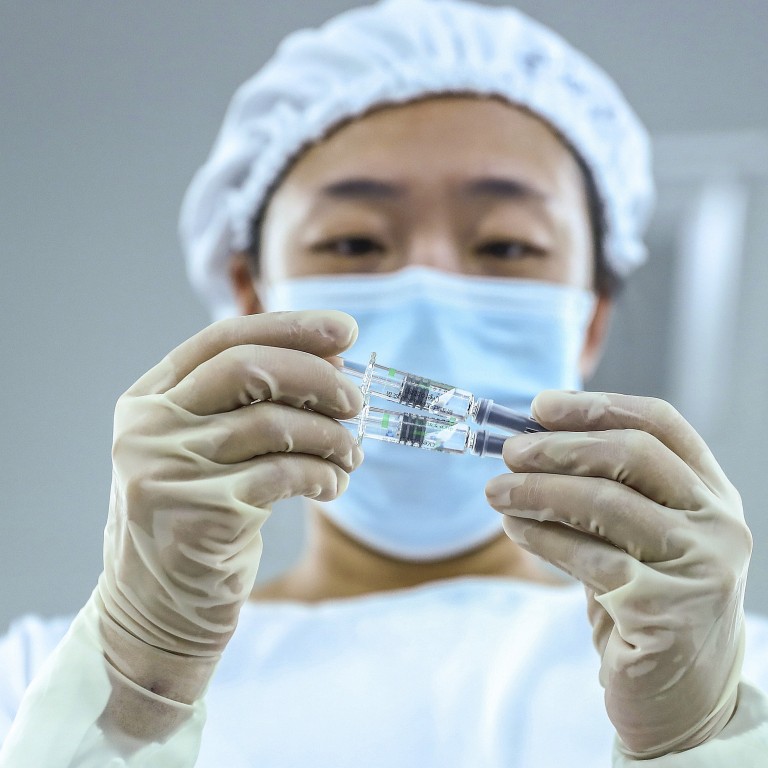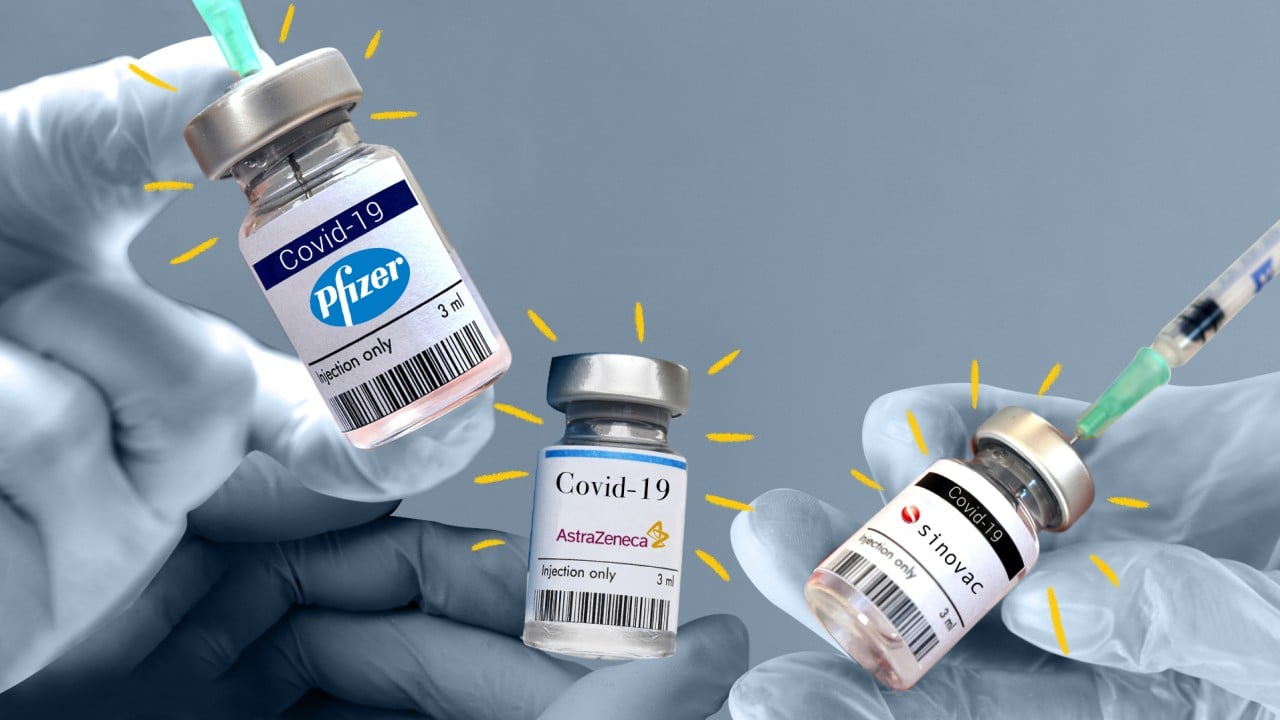
Coronavirus: China’s Sinopharm seeks general use green light for second vaccine
- State firm says it has applied for approval for shot developed by the Wuhan Institute of Biological Products
- Work is also under way on a third jab using different technology that would be easier to scale up, company chairman says
Just two months after its first coronavirus vaccine was approved for general use, Chinese pharmaceutical giant Sinopharm is applying for similar regulatory approval for a second, with plans for clinical trials for a third, group chairman Liu Jingzhen said.
Liu told state broadcaster China Central Television on Sunday that Sinopharm had applied for a market launch of the Wuhan institute vaccine, which would supplement existing output.
“The production facility of Wuhan institute has a phase one capacity of more than 100 million doses,” Liu said. “If we count Wuhan and Beijing together ... the combined capacity of the production facilities will reach 1 billion [doses] this year.”
China’s public hesitant to take Covid-19 vaccines, another survey suggests
Sinopharm said in December that the Beijing institute vaccine was 79 per cent effective in preventing symptomatic Covid-19 diseases but it did not elaborate on the results or publish trial data. The product has been approved for general use in the United Arab Emirates and for emergency use in Argentina, Nepal, Egypt, Pakistan and Peru.
There is also no public data on the phase 3 data of the Wuhan institute vaccine.
Sinopharm said in June that the first two phases had good safety results and no serious adverse events. It also said that all of the more than 1,120 people vaccinated had developed high concentrations of antibodies. All participants given two doses 28 days apart developed neutralising antibodies, the company said.
Both vaccines were authorised for emergency use in China in July and more than 43 million doses have been given since, including 34 million in China, according to the CCTV report.

09:50
SCMP Explains: What's the difference between the major Covid-19 vaccines?
Liu said Beijing institute vaccine was initially approved for emergency use for people aged 18 to 59 but the age limit was lifted to above 60 after it was approved for general use, with one shot given to a person aged nearly 100. The UAE and Morocco also approved the vaccine to used on people over 60.
The age restrictions were expected to be further relaxed to cover children as young as three years old, he said.
“From our clinical trials, [we find] no major difference of the effects of the vaccine on people three to 17 years old compared with those aged 18 to 59 years old,” Liu said. “I believe people who are between three and 17 years old can soon [be allowed] to take the vaccine.”
China says stockpiling of Covid-19 vaccines by rich countries needs to stop
Sinopharm’s vaccine development arm China National Biotec Group, which owns the two institutes, started looking into potential coronavirus vaccines in January last year.
The researchers focused on inactivated vaccines, which are a more mature technology with existing regulatory standards.
The group is also developing a recombinant protein vaccine which will be ready for clinical trials soon and is expected to have higher efficacy and be quicker to produce.
“This vaccine should be more effective and easier to scale up [than the inactivated vaccines],” Liu said, saying that inactivated vaccines had to be processed in a high-level biosafety laboratory. “[We] can easily double the production capacity for recombinant protein vaccines.”
Meanwhile, China will give coronavirus vaccine aid to 19 more African countries, according to the Chinese foreign ministry.
State news agency Xinhua reported that ministry spokesman Wang Wenbin gave the assurance on Monday in response to French President Emmanuel Macron’s suggestion that Europe and the United States should immediately provide enough coronavirus vaccine doses to Africa.
Otherwise African countries may choose to purchase vaccines from China and Russia and “the strength of the West will be a concept, and not a reality”, Macron said.

